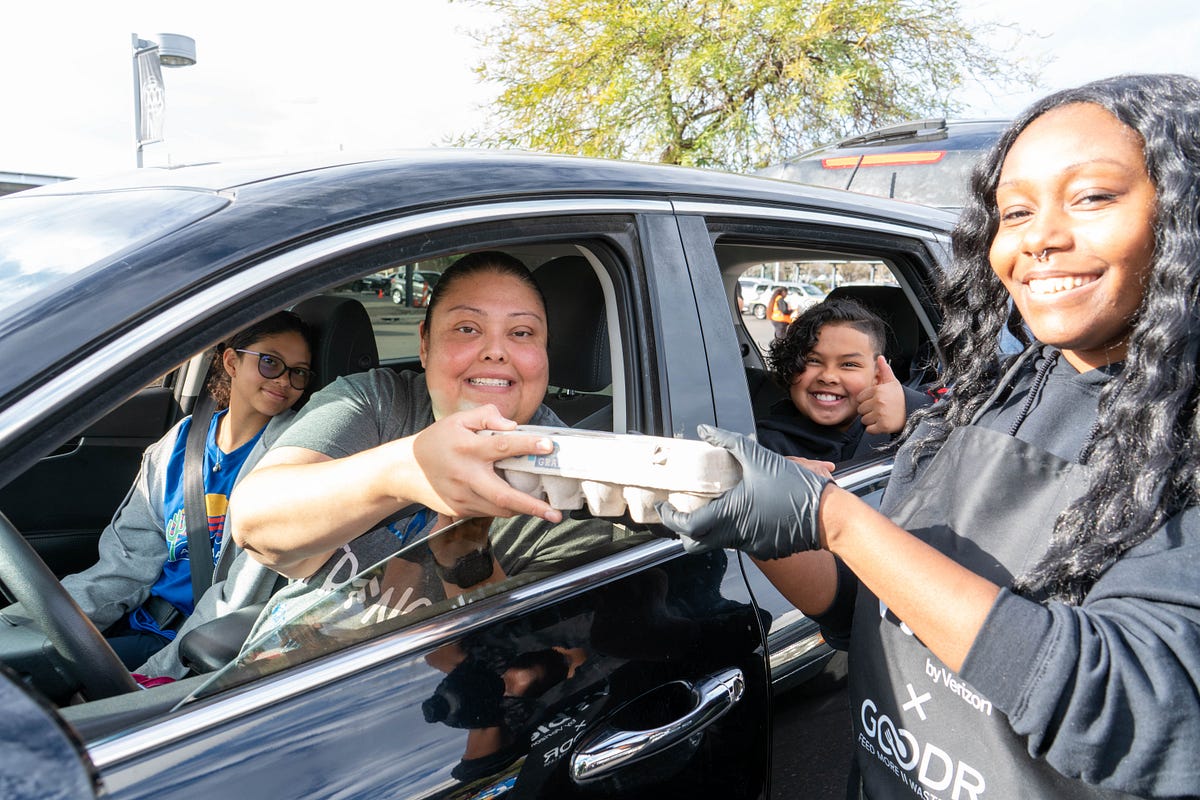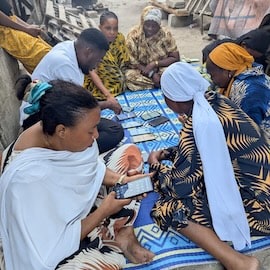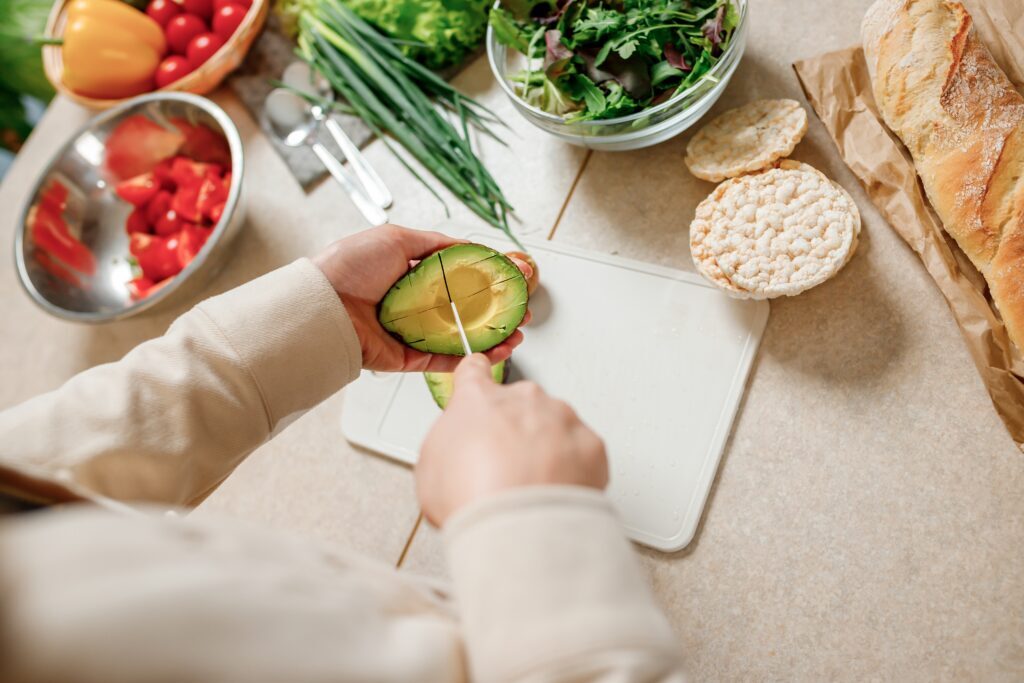Personalized attention and a $500,000 line of credit from RSF Social Finance allow Goodr to prove businesses can be a force for good
On a winter Monday in 2016, Jasmine Crowe-Houston woke up to the news that she had gone viral.
Since 2013, Crowe-Houston had been cooking food for people living unhoused across Atlanta. By 2016, her Soul Sunday ATL dinner was feeding 300‒500 people every week. When she checked her phone that morning, Crowe-Houston recalls, “I [had] millions of views and friend requests from people telling me what an amazing job I was doing and asking who donated the food for my dinners.”
“The truth was, I’d been couponing and cooking all the meals myself since 2013. I started to think about how many more people I could feed if the food was donated.”
While researching options, Crowe-Houston tumbled down a rabbit hole about food waste and hunger. Discarded food, she learned, accounts for 24% of all waste annually in the U.S. Further, 40% — or 17 billion pounds — of food go to waste every year. Meanwhile, there are 54 million food-insecure Americans. These findings inspired her to start Goodr, a mission-driven business that leverages intuitive technology and nationwide logistics to reduce waste at the source, get surplus food into the hands of people who need it, and minimize the environmental impact of food production.
Crowe-Houston built the business by scraping together what capital she could from traditional sources. In 2024, she finally got the mission-aligned capital she needed to launch a new phase of growth and impact.
Addressing food waste with data — and hunger with dignity
On the food waste side, Goodr works with large-scale businesses like Bimbo Bakeries, Emory University, and IHG Hotel Group to direct excess food to nonprofit organizations that feed people who are food insecure. It also diverts food that’s no longer fit for human consumption through its organics recycling and holistic waste management programs. Goodr then provides customers with data about pounds of food donated, CO2 emissions prevented, who received the food, the number of meals provided, and the tax savings from the items donated.
Meanwhile, Goodr approaches hunger through a dignity lens, collaborating with nonprofit organizations like ACPA Kids and the YMCA to provide access to foods that people want, when they need them. Goodr also distributes food directly to people who need it through free drive-up pop-up markets, mobile stores and semi-permanent grocery stores. Rather than receiving a generic box of assorted goods the way they would at a food drive, patrons can “shop” for what they want and need and receive their groceries bagged up the way they would be at a regular supermarket. The company also provides grocery and meal delivery services for people who live in food deserts or struggle with transportation access and delivers healthy snack packs to school children.
RSF provides the missing piece: mission alignment
When an investor first introduced Crowe-Houston to the RSF team, she was seeking flexible working capital that would help Goodr upgrade its warehouse capacity and hire additional staff. She found that and more: a real partner.
“Good missions so often get lost in conversations about funding,” says Crowe-Houston. “So when the RSF team emphasized how deeply they care about making an impact and told me they wanted to do more in places like Atlanta, where my work started, I felt like I’d finally found the mission alignment I’d been seeking.”
RSF also saw a perfect match in Goodr’s integrated, holistic approach to solving a social justice challenge (hunger) and an environmental problem (food waste). The lender issued a $500,000 line of credit to Goodr, enabling the company to move out of its cramped warehouse-office-storage space and into a fulfillment center that provides room for expansion. Goodr is also beefing up its operations and sales teams.
Crowe-Houston notes that RSF goes above and beyond by showing up in-person to support and celebrate Goodr’s growth and new accomplishments — it was the only one of the company’s investors to accept an invitation to the grand opening of Goodr’s first West Coast grocery store in San Francisco. “RSF’s personalized attention makes me excited to work with them,” she says.
Business as a force for impact
Goodr currently operates in 26 markets across 13 states. In 2023 alone, the company provided 2.2 million meals, prevented 7.8 million pounds of carbon dioxide emissions from entering the atmosphere, diverted 4.6 million pounds of waste from landfills, and facilitated $4.6 million worth of food donations in the communities where it operates. And this is just the beginning.
To date, Goodr has served almost 35 million people and counting; Crowe-Houston wants to serve that many people every day. The new warehouse puts the team’s goal of expanding into providing disaster relief in reach. And in the next five years, the company plans to offer its services in markets across North America.
Like RSF, Crowe-Houston believes business can be a vehicle for solving global challenges. “My ultimate goal is to inspire others to see that a business can do well by doing good, and to create businesses that solve problems,” she says. “I think we as a country tend to put systemic challenges into a bucket of things that only nonprofits can solve. But our success shows that business can lead the way.”
Publisher: Source link






